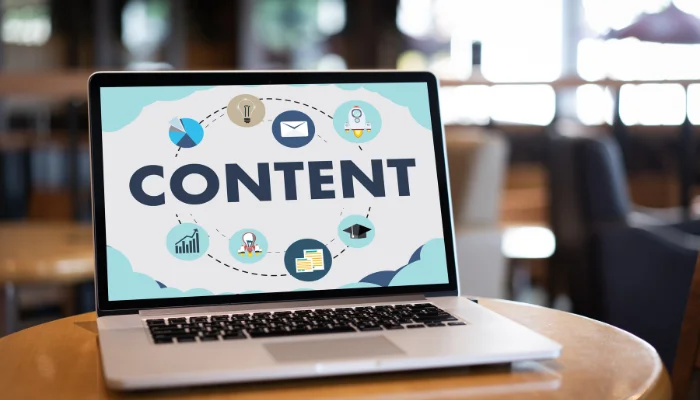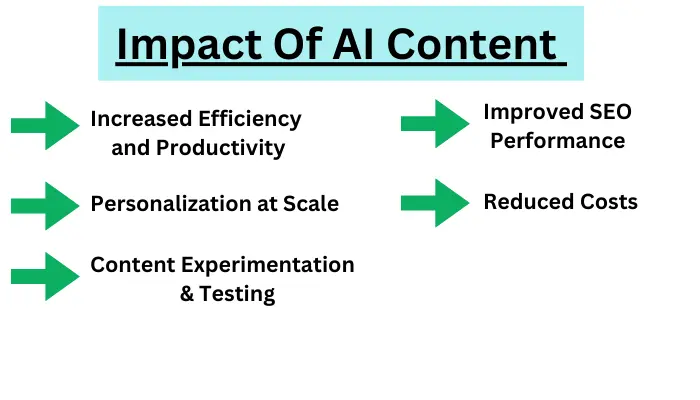
In the ever-evolving landscape of digital marketing, the advent of artificial intelligence (AI) has ushered in a new era of possibilities, particularly in the realm of content creation. AI-generated content, once a novel concept, is rapidly becoming a staple in the marketer’s toolkit, offering a glimpse into the future of automated copywriting. This transformative technology is reshaping how brands approach content creation, enabling marketers to produce high-quality, engaging content at scale. This blog delves into the world of AI-generated content, exploring its implications for the marketing industry and offering insights into how businesses can leverage this technology to streamline their content strategies.
AI-generated content refers to text, images, videos, and other media types created using artificial intelligence technologies. In the context of copywriting, AI tools utilize natural language processing (NLP) and machine learning algorithms to generate written content that mimics human writing styles. These tools can produce a wide range of content, from blog posts and social media updates to product descriptions and email campaigns, all with minimal human intervention.
The appeal of AI-generated content lies in its efficiency and scalability. By automating routine writing tasks, businesses can significantly reduce the time and resources traditionally required for content production. This not only accelerates content output but also allows marketers to focus on strategic, creative tasks that require a human touch. Moreover, AI tools can analyze vast amounts of data to produce content that is optimized for search engines and tailored to specific audience preferences, enhancing the effectiveness of marketing campaigns.

AI-generated content tools can produce written material at a pace no human writer can match, significantly boosting content production efficiency. This is particularly beneficial for businesses that need to maintain a consistent online presence across multiple platforms.
One of the most significant advantages of AI in marketing is its ability to personalize content for individual users at scale. By analyzing user data, AI tools can create customized content that resonates with different segments of a brand’s audience, enhancing engagement and conversion rates.
AI-generated content tools are equipped with the ability to analyze search trends and incorporate relevant keywords seamlessly into the text, optimizing content for search engines. This can improve a website’s SEO performance, driving more organic traffic and increasing visibility.
AI facilitates rapid content experimentation, enabling marketers to test different headlines, calls-to-action, and content formats to determine what resonates best with their audience. This data-driven approach to content creation can significantly enhance the effectiveness of marketing strategies.
While AI-generated content offers numerous benefits, it also presents challenges that marketers must navigate:
Ensuring that AI-generated content aligns with a brand’s voice and values is crucial. Marketers need to closely monitor and refine AI-generated content to maintain authenticity and ensure that it reflects the brand’s identity.
The use of AI in content creation raises ethical questions, particularly regarding transparency and copyright issues. Brands must be transparent about their use of AI-generated content and ensure that it is used responsibly and ethically.
While AI can produce content quickly, human oversight is essential to ensure quality and accuracy. Marketers must review and edit AI-generated content to correct any inaccuracies and ensure it meets quality standards.
To maximize the benefits of AI-generated content while addressing its challenges, businesses should consider the following best practices:
Before integrating AI-generated content into your marketing strategy, define clear objectives for what you aim to achieve. Whether it’s increasing content output, enhancing personalization, or improving SEO, having specific goals will help you leverage AI more effectively.
Select AI content generation tools that best suit your needs and objectives. Consider factors such as the type of content you need, the level of customization required, and the tool’s integration capabilities with your existing marketing stack.
Combine the strengths of AI with human creativity and oversight. Use AI-generated content to handle routine writing tasks, while relying on human marketers for strategic content planning, creative storytelling, and quality control.
Regularly monitor the performance of AI-generated content using analytics tools. Analyze metrics such as engagement, conversion rates, and SEO rankings to assess its effectiveness and make data-driven adjustments to your strategy.
Also Read: Visual Search SEO: Optimizing for Image-Based Search Queries
As AI technologies continue to evolve, the capabilities of AI-generated content tools will expand, offering even more sophisticated and nuanced content creation options. Future advancements may include more personalized and interactive content, greater integration with other marketing technologies, and improved natural language generation that makes distinguishing between human and AI-generated content increasingly difficult.
AI-generated content is transforming the marketing industry, offering businesses a powerful tool to enhance their content strategies, engage with their audience, and achieve their marketing objectives more efficiently. By embracing this technology and implementing best practices, marketers can navigate the challenges and unlock the full potential of AI in content creation. As we look to the future, the integration of AI-generated content into marketing strategies will undoubtedly become more prevalent, driving innovation and reshaping the way brands communicate with their audiences in the digital age.






DigiDir Digital Solutions Private Limited | All Rights Reserved 2018- 2024
Digital Marketing Agency/ Company in Noida, Delhi NCR, India